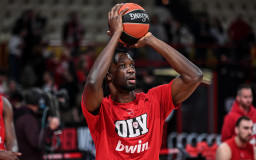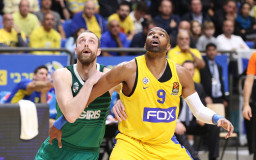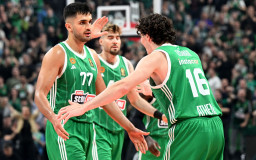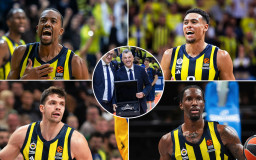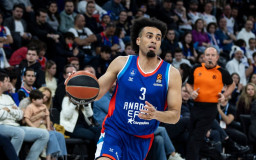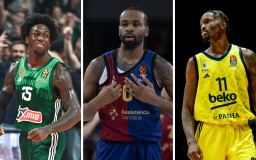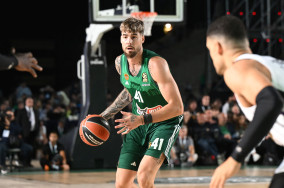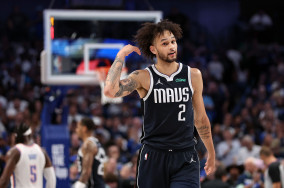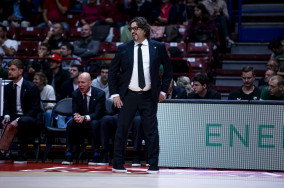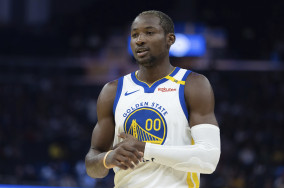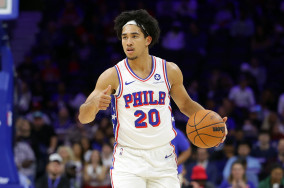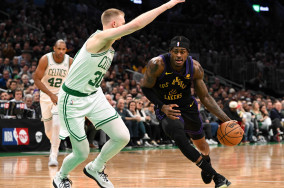Anthony Edwards is one of the most exciting young shooting guards we've had... well…since Michael Jordan. However, some find any comparison to be blasphemous.
Whether or not the comparison is unfair or unjustified, if we have to be honest with ourselves, there are some shades of MJ in Edward's game. Not only MJ, but he shares this distinction with another of the league's great shooting guards.
Whenever Jalen Rose talks about Kobe, he always loudly proclaims: "If Michael Jordan is the original, Kobe Bryant is the remix baby." So, if Kobe is the remix of MJ, is Anthony Edwards the remix of the remix?
Let's put the question to the test and compare Anthony Edwards to MJ and Kobe, both at 22. Let's see if it offers any clues to what Ant Man could be.
What's ultimately interesting about this comparison – when looking at three 22-year-old players across three different decades – is how much the NBA has changed.
MJ was a three-year college player from the North Carolina Tar Heels before coming out, Kobe came straight out of high school, and Ant Man was a one-and-done college prospect from Georgia.
Kobe, at 22, was working his fifth season, MJ was on his sophomore campaign, and Anthony Edwards had just wrapped up his fourth season. However, despite the experience difference, they share a common thread regarding how those seasons eventually shook out.
In the 1985-86 season, MJ was coming off a blistering rookie of the year, one in which he had averaged 28.2 points per game and set a franchise scoring record. However, in his sophomore season, he would face his first major setback – missing a large chunk of the regular season due to injury.
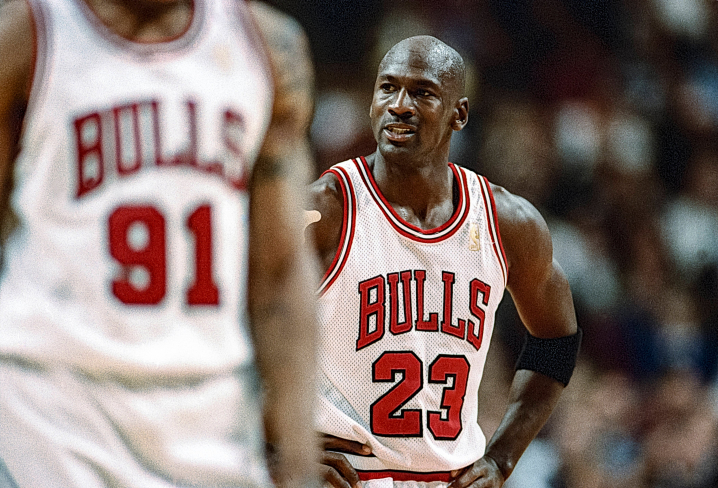
Unperturbed by doctors' medical advice or even the organization's wish for him to sit out the rest of the season – to tank for a better pick – Jordan returned with a vengeance and got the Bulls an 8th seed and a playoff matchup against the Boston Celtics (a team that is arguably one of the greatest of all time).
Now, if you're watching this video, you've most likely watched The Last Dance. This 1986 playoff series was a key milestone in Jordan's mythology and his real coming-out party.
He announced himself as a true force to be reckoned with, averaging a whopping 43.7 points against the Celtics in this series and scoring a masterpiece of 63 points in game 2.
And if you're one of the few people who haven't watched the Last Dance, please do yourself a favor and get on that immediately.
At 22, Kobe had a distinction the other two did not – he was already an NBA champion. He'd come through in the clutch in the 2000 playoffs and even given us one of the sport's most replayed moments.
However, the dynamic in the 2000-01 season had shifted. Kobe had returned from the off-season a better and much more complete player. Ultimately, ego-wise, this brought him on a collision course with Shaq, resulting in one of the most tumultuous dynamics in recent Basketball history.
The result was a listless regular season marked by fights staged in the media, injuries, complacency, and inconsistent play (especially on defense).
All of this changed in the latter half of the campaign, with Kobe and Shaq finding an understanding. They put their differences aside and tore through the playoffs, ultimately posting a 15-1 record and toppling Iverson's Sixers in the finals.
During this run, Shaq and Kobe would take turns dismantling opponents. Amongst the legendary performances was Kobe's 45 points in Game 1 of the Western Conference finals, stunning the seed home-court Spurs and the league's best defense.
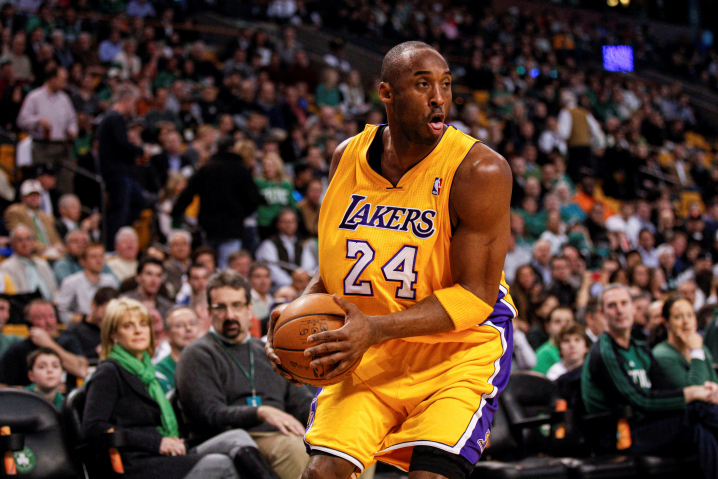
By the end of the 2000-01 season, celebrating his second championship, Kobe had put the league on notice, and we now marked him as something truly special. He was no longer just one of the league's better perimeter players, or even just a superstar, he was the heir to Jordan's throne.
So, while Jordan and Kobe, at 22, had different results in terms of what they achieved at that point in their careers – although you'd have to question what Jordan could've done otherwise with a prime Shaq – what is fundamentally important is they had changed the perception of themselves greatly.
Now, based on what I have described, you will probably note some similarities to Anthony Edward's most recent season. In his young career, Ant had become an all-star and flashed some serious potential, contributing some truly insane highlights to the nightly top 10 — including this.
Under the radar, Edwards had improved remarkably. Yet, conventionally, Ant Man was thought of as a talented but inconsistent player on the rise. A knucklehead youngster who had oozed talent and had engaged with his personality but who'd yet to truly convince. There was certainly strong skepticism on his ceiling and what he could be.
Starting the 2023-24 season and returning from the World Cup glowing with confidence, Anthony Edwards made the Timberwolves a team to beat.
He'd even done the unthinkable – he'd managed to reign in Karl Anthony Towns. Through a unique force of personality that blends equal parts charisma, likability, humor, and an effortless confidence and swagger, he'd forced KAT to accept his role as the second fiddle.
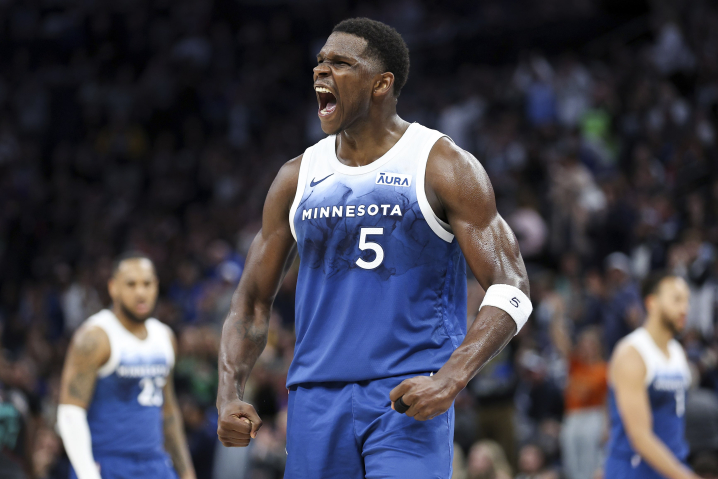
With Edwards making a name for himself as one of the best two-way players in the game, he complimented a roster that included a stable of perimeter defenders and a returning healthy Gobert on the defensive player of the year form.
The Timberwolves became the top-rated defensive team, and barring an unfortunate late-season injury to their enigmatic second All-Star – KAT – they'd have been a surefire No. 1 seed in the Western Conference.
That had been enough for Edwards to raise some eyebrows during the regular season –earning a second all-star place, getting voted into the All-NBA 2nd team, and even getting some MVP votes – but, much like Jordan and Kobe at 22, the postseason was truly his canvas for changing perceptions.
In what was originally dubbed a 50/50 series in a first-round matchup against the Phoenix Suns, Anthony Edwards exploded out the traps, scoring 30 or more points in three of the four games of a sweep – knocking out his idol in the process.
Then, in a rematch against the reigning champion Nuggets, Edwards orchestrated a Game 1 masterpiece: dropping 43, 3, and 7, as well as this dagger.
The hype had well and truly gone supernova. Ant Man had gone from superstar on a small market squad to now earning consideration as a future face of the league. Across all corners of the basketball mediaverse, there wasn't just excitement but open comparison to the greatest of basketball icons.
Now, we all know how this ultimately ended. The candle that burns twice as bright burns half as long. Unlike Kobe, Ant Man didn't have a prime Shaq to rely upon.
22-year-old players typically do not make the NBA finals. They miscalculate, run out of gas, or become afflicted by tunnel vision, and the tendencies of youth and inexperience show.
Still, as a result of this most recent postseason, we all look at Anthony Edwards remarkably differently. Heading into the next season, it feels like a generational change is coming.
A passing of the torch moment, and headlining that conversation are two names: Anthony Edwards and Victor Wembanyama.
So, when it comes to comparisons between MJ and Kobe, they are not completely unfounded. Anthony Edwards not only shares tendencies in playstyle – combining otherworldly athleticism with suffocating perimeter defense and a host of acrobatic finishes at the cup – but he even demonstrates the patented turnaround mid-range fadeaway – the staple of late-career MJ and Kobe's go-to move.
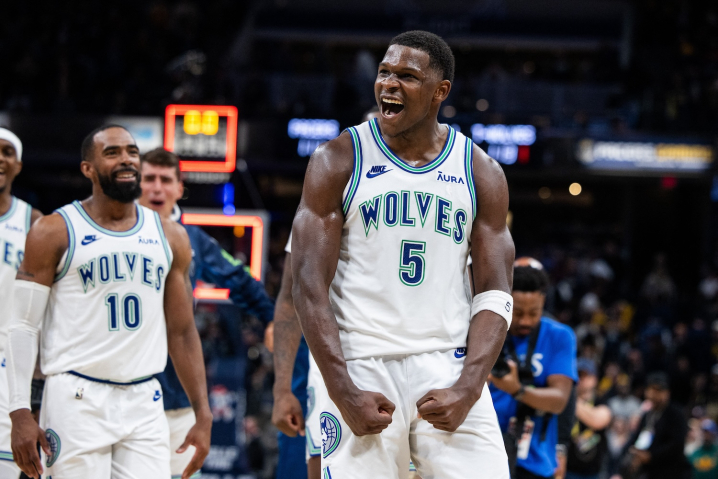
Not only that but at 22, he also shares similarities in terms of his trajectory. Like MJ and Kobe, postseason performances rocketed them into the face of the league conversation, with a ceiling suggesting a potential for greatness.
They did their best work on the biggest stage and did so against the biggest opponent.
But that is as far as I'll go. Ant Man had an impressive showing last year, but he still has a long way to go until he can equal what Kobe did at 22 and reach the mythical status that MJ cultivated.
Ultimately, by the time they turned 23, MJ went out swinging against one of the great teams in NBA history, with an underpowered Bulls team, and Kobe won his second championship.
By comparison, Ant Man's most recent playoff experience ended in disappointment against the Mavericks, but hopefully, with a lesson.
What the future holds and what will become of his career is anyone's guess. Success is not a given, and we can look back at these heady days as knee-jerk over excitement. Edwards has a long way to live up to those comparisons, and we should temper our expectations somewhat and see how his career progresses.
Still, if he is ready to follow in these greats' footsteps, looking at their seasons at 23 might give us a clue for what is to come.
In the 1986-87 season, after turning 23, with a new profound swagger, MJ took a significant step forward in his career. He averaged a sizzling 37.1 points per game, was second in MVP voting, earned All-NBA first-team honors, and received defensive player of the year award votes.
Could Anthony Edwards, now returning from a Team USA journey in Paris, also experience a similar seismic leap? Will his scoring totals jump? Will he be in the conversation as the league's best perimeter defender?
Will the Timberwolves maintain their hold as a top seed in the West? And will he be in the conversation as an MVP?
Only time will tell, and if Anthony Edwards is anywhere near as special as some of the signs indicate, it could be another milestone in his pathway to legendary status.
Watch the video:
Thank you for being with us! Subscribe to BN+ and browse ad-free.